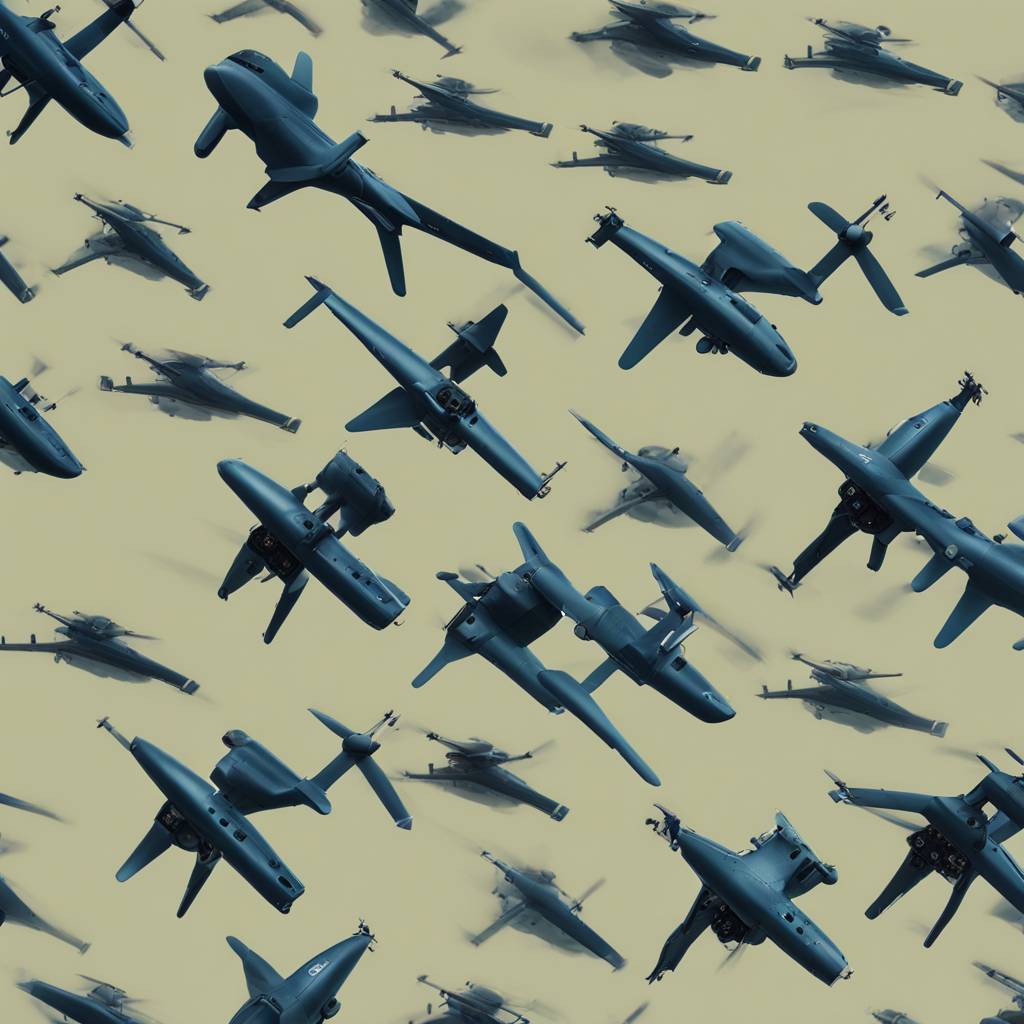Russia is arming its Black Sea Fleet with new first-person-view (FPV) drones equipped with fragmentation warheads that can be detonated remotely, according to Russian online newspaper Mash. The drones are designed to destroy enemy boats by flying up to them and pressing a button to trigger a powerful explosion. Mash shared a video allegedly showing Black Sea Fleet engineers testing the drones in Crimea, although the footage has not been independently verified.
The Ukrainian military has reported that Russians are experimenting with FPV drones equipped with advanced communications near the front line near Bakhmut in Ukraine. Military expert Serhii Flesh wrote on Telegram about retrieving a Russian FPV drone carrying a wire coil for an unknown purpose. FPV drones have become essential tools for both Moscow and Kyiv in their battle for control of the skies in Ukraine. The reported attempts to arm the Black Sea Fleet with these new drones suggest that the Russian military is trying to strengthen its assets, especially after suffering losses in March when several vessels were reportedly attacked by the Ukrainian military.
In March, the Ukrainian military reported attacking a series of vessels around Russian-controlled Crimea, including large landing ships, a reconnaissance ship, and a patrol ship. Officials estimated that since the beginning of the Russian invasion in February 2022, Ukraine has taken out around a third of Moscow’s Black Sea Fleet. Despite these losses, Russia still maintains control of the Crimean Peninsula. Russian Defense Minister Sergei Shoigu announced plans to boost the fleet by adding three new missile carriers, including small missile carriers of the Karakurt type. The lead ship of this series, the Cyclone, has already become part of the Black Sea Fleet.
The use of drones in military operations has become increasingly common, as they provide valuable intelligence and surveillance capabilities, as well as the ability to conduct precision strikes. Both Russia and Ukraine have been utilizing drones in their conflict, with Moscow reportedly arming its Black Sea Fleet with new FPV drones equipped with fragmentation warheads. These drones can be remotely detonated to destroy enemy vessels, providing the Russian military with an additional weapon in their arsenal. The Ukrainian military has also been experimenting with drones near the front line, as they continue to combat Russian forces in the ongoing conflict.
The Black Sea Fleet has been a focal point of the conflict, with Ukrainian forces targeting Russian vessels in an attempt to weaken Moscow’s control of the region. Despite facing losses, Russia remains determined to strengthen the fleet by adding new missile carriers, enhancing its combat potential. The use of drones in naval operations underscores the evolving nature of warfare, as new technologies are integrated into traditional military strategies. The development and deployment of FPV drones by both Russia and Ukraine highlight the importance of adapting to modern warfare tactics in the ongoing conflict in Eastern Europe.
The conflict in Ukraine has escalated tensions between Russia and Western powers, with both sides seeking to gain the upper hand in the region. The use of drones in military operations reflects the changing nature of warfare, with advanced technologies playing an increasingly significant role. As Russia arms its Black Sea Fleet with new FPV drones, the conflict in Ukraine is likely to continue to evolve, with both sides adapting to the challenges of modern warfare. The ongoing conflict underscores the importance of staying informed about developments in the region and the implications for global security.








